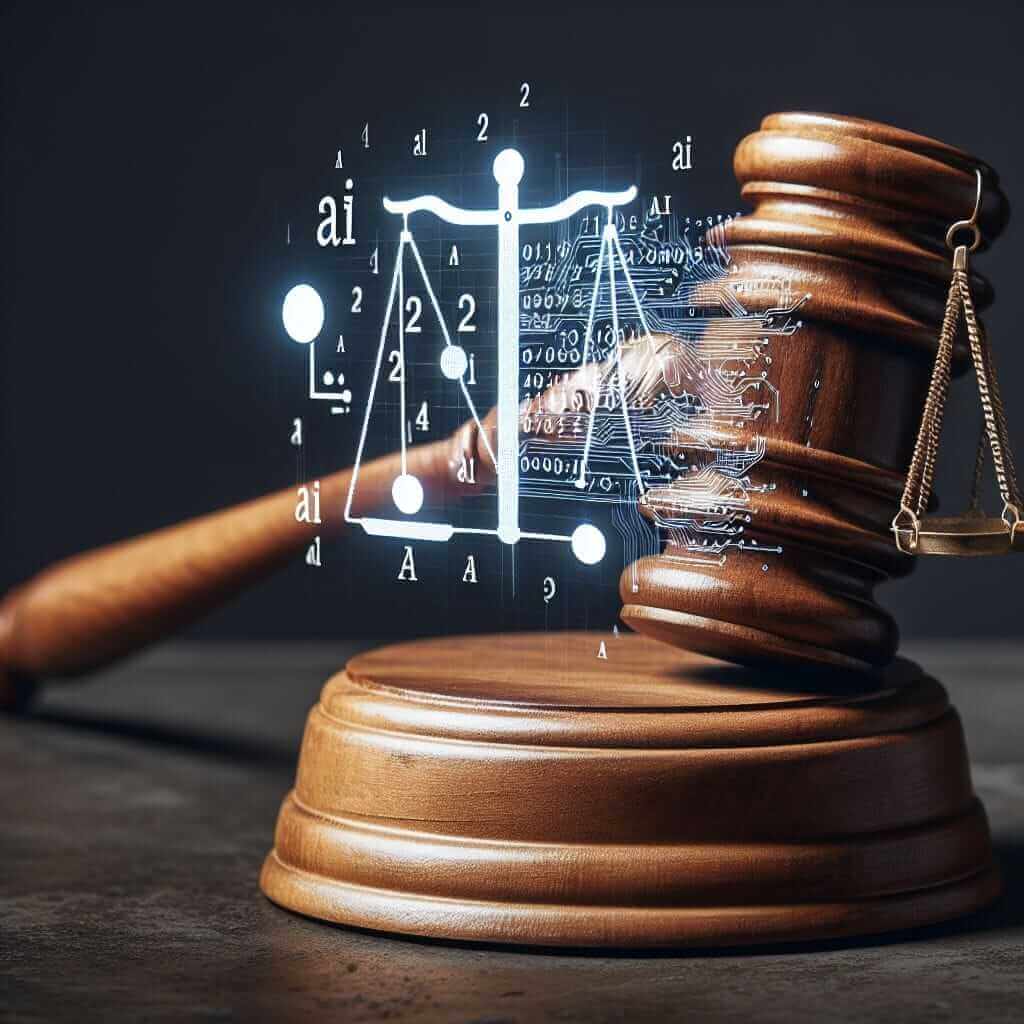The IELTS Reading test assesses your ability to comprehend detailed information, understand logical argument structures, recognize opinions, and interpret factual data. One critical and emerging topic often seen in the IELTS exams is the ethical implications of AI in the justice system. This topic, given its current relevance and complexity, has a high likelihood of appearing in future exams.
In this article, we’ll explore a detailed IELTS Reading practice text on the ethical implications of AI in the justice system, complete with structured questions, answer keys, common pitfalls, vocabulary tips, and grammatical highlights.
Reading Passage: The Ethical Implications of AI in the Justice System
[Medium Text]
Artificial Intelligence (AI) has infiltrated numerous sectors, including healthcare, finance, and particularly, the justice system. While AI promises efficiency and reduced human error, its integration into judicial processes raises substantial ethical concerns.
Firstly, bias in AI algorithms is a significant issue. AI systems trained on historical data can perpetuate and even exacerbate existing biases. For instance, if historical data includes biased sentencing, the AI might predict harsher penalties for certain demographic groups. This phenomenon raises questions about fairness and equality in the justice system.

Moreover, the transparency of AI decisions is often limited. Unlike human judges, AI lacks the capacity to explain its decisions in a comprehensible manner. This opacity can undermine trust and accountability in judicial outcomes.
There are also concerns regarding data privacy. AI systems require vast amounts of data to function effectively, but the use of such data in the justice system can lead to unauthorized surveillance and misuse of personal information. The ethical implications of such potential privacy invasions cannot be overstated.
Despite these concerns, proponents argue that AI, if regulated and overseen properly, can bring numerous benefits. For example, AI can assist in managing large volumes of case data, speeding up legal processes, and ensuring consistency in sentencing.
In conclusion, while the adoption of AI in the justice system could potentially revolutionize the legal landscape, it poses several ethical challenges that must be addressed. Effective regulatory frameworks and ethical guidelines are essential to navigate these challenges and harness AI’s full potential responsibly.
Questions
Identifying Information (True/False/Not Given)
- AI’s integration into the justice system eliminates all forms of human error.
- Historical biases in data have no impact on AI predictions.
- AI systems can be fully transparent in their decision-making process.
- Privacy concerns arise from the extensive data usage by AI systems in the justice system.
Summary Completion
Complete the following summary using words from the text.
AI’s application in the justice system raises several ethical issues. One major concern is the presence of 1 in AI algorithms, which can lead to unfair 2 for certain groups. Another issue is 3, as AI decisions are often not easily understandable. Furthermore, the need for extensive data for AI operations can violate 4.
Answer Key and Explanations
Identifying Information (True/False/Not Given)
- False – AI promises efficiency and reduced human error but does not eliminate all forms of human error.
- False – Historical biases in data can impact AI predictions negatively.
- False – AI decisions are often not transparent.
- True – Privacy concerns are linked to large data usage by AI in the justice system.
Summary Completion
- biases
- penalties
- transparency
- privacy
Common Pitfalls
- Misinterpretation of Keywords: Pay attention to specific terms like “eliminate” vs. “reduce.” Understanding the nuanced meanings can help avoid mistakes.
- Contextual Awareness: Ensure that you understand the context of each statement to accurately determine True/False/Not Given questions.
- Completeness in Summaries: When completing summaries, use exact words from the passage to avoid unnecessary errors.
Vocabulary
- Biased (adj.) /ˈbaɪəst/: Showing an unreasonable like or dislike for a person based on personal opinions.
- Transparency (n.) /trænˈspærənsi/: The quality of being easy to see through.
- Ethical (adj.) /ˈɛθɪkəl/: Relating to moral principles or the branch of knowledge dealing with these.
Grammar Highlight
- Passive Voice: “AI decisions are often not easily understandable.” Use the passive voice to emphasize the action rather than the doer.
- Formula: [Be] + [Past Participle]
- Example: “Transparency is prioritized in ethical AI development.”
Advice for High Reading Scores in IELTS
- Practice Regularly: Consistent practice with diverse reading materials can improve comprehension skills.
- Expand Vocabulary: Focus on enhancing your vocabulary for specific IELTS topics.
- Focus on Details: Pay close attention to the information given in the passage and avoid making assumptions.
- Time Management: Practice completing reading tasks within the time limits to ensure efficiency during the exam.
For more resources, you can check out our articles on the challenges of regulating AI in the legal system and the implications of AI in the legal system.